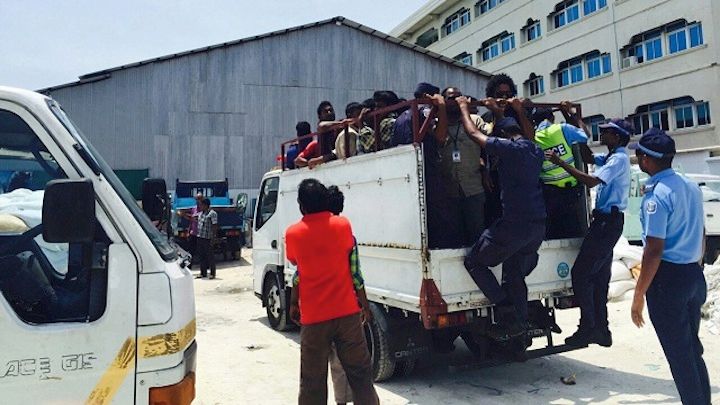Maldives placed back on US human trafficking watch list
“The government did not initiate any prosecutions and there were no convictions in 2014, a decrease from one conviction in 2013, and some officials warned businesses in advance of planned raids to investigate suspected trafficking offences or other labour abuses,” reads the US State Department’s 2015 Trafficking in Persons report.

28 Jul 2015, 09:00
The Maldives has been placed back on the US State Department’s tier 2 watch list for human trafficking over lack of progress in the government’s anti-trafficking efforts.
Following the enactment of the Prevention of Human Trafficking Act in December 2013, the opening of a shelter for trafficking victims, and the first conviction for the offence, the Maldives was removed from the watch list in 2014 after four years and avoided a downgrade to the lowest tier with possible non-humanitarian and non-trade sanctions.
The State Department’s 2015 Trafficking in Persons (TIP) report – regarded as a key global measure of anti-trafficking efforts – stated that the Maldivian government “does not fully comply with the minimum standards for the elimination of trafficking; however, it is making significant efforts to do so.”
The report noted the adoption of national action plan for 2015-2019 to prevent human trafficking in May by the government’s coordination committee as well as development of “procedures for victim identification, protection, and referral.”
Become a member
Get full access to our archive and personalise your experience.
Already a member?
Discussion
No comments yet. Be the first to share your thoughts!
No comments yet. Be the first to join the conversation!
Join the Conversation
Sign in to share your thoughts under an alias and take part in the discussion. Independent journalism thrives on open, respectful debate — your voice matters.




